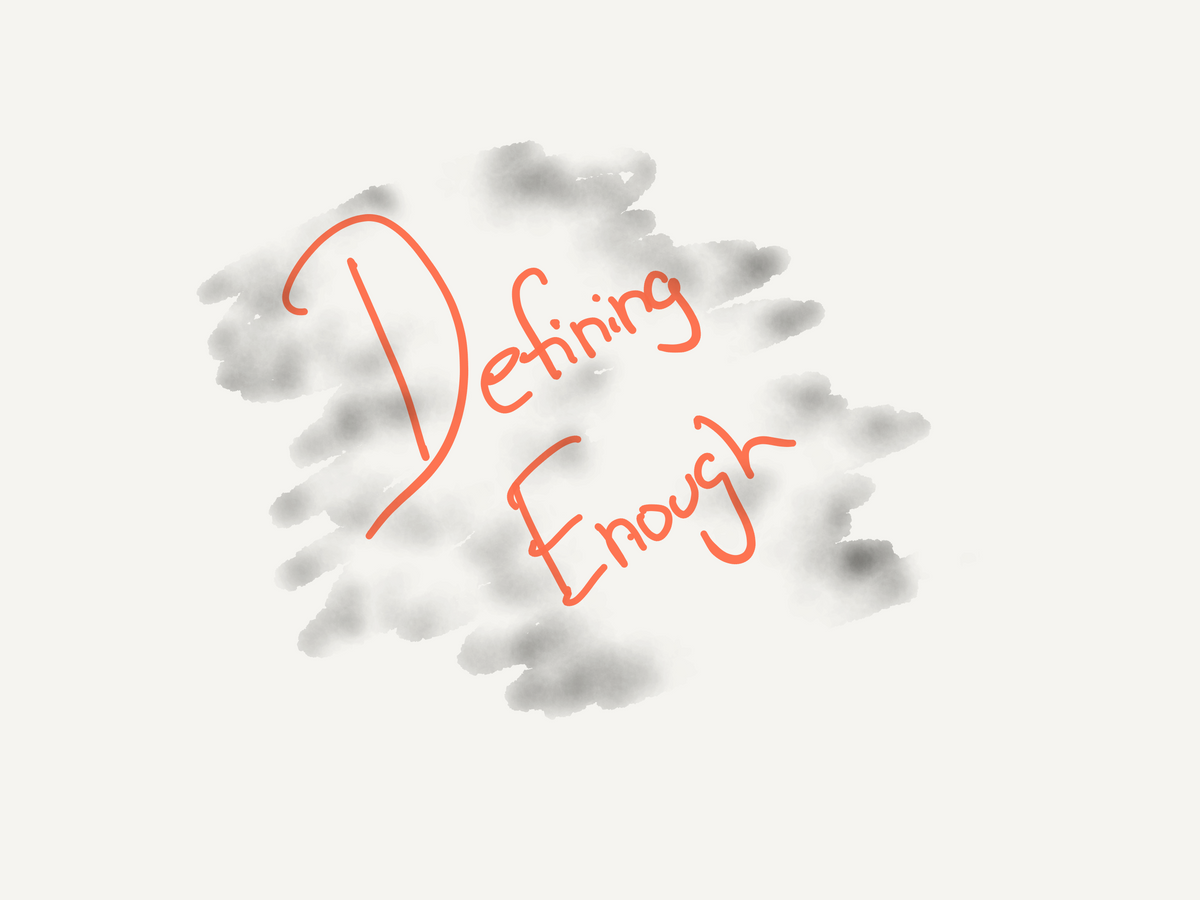Defining Enough

There's a popular story between two authors at a billionaire's party that goes like this:
Kurt Vonnegut and Joseph Heller were sitting by a table at a billionaire's party on Shelter Island. Vonnegut wrote multiple books including Slaughterhouse Five. Heller was also a great author in his own right with Catch 22 being part of his CV.
Vonnegut asked Heller, "how does it feel to know that the host of the party made so much money in a single day than your novel Catch-22 will have ever made in its lifetime?"
"I've got something he doesn't have," Heller said.
"What on Earth could that be, Joe?" Vonnegut asked.
"The knowledge that I've got enough," Heller replied.
He was content with what he had. This didn't mean complacency since he wrote more novels after this party, each of which did well. His definition of enough wasn't tied to a moving goalpost like I will be happy only if my fifteenth novel hits the best sellers list or only if I make a million more dollars will I be content.
This is similar to what Seneca says in his letters to Lucilius, "What is the proper limit to a person's wealth? First, having what is essential, and second, having what is enough."
Morgan Housel, the author of Psychology of Money, says the most important financial problem is not to move the goalposts. This isn't just a financial problem though. This applies to other areas in life, maybe your possessions, perhaps a skill you want to get good at, or a project you are working on. Set your goalposts and keep them there.
There's a good example of sticking to goalposts in the software industry. There's a database called BoltDB that is intended to be used for simple cases where standard database systems didn't make sense due to high overhead costs.
The author started the project BoltDB with a list of features he'd like to have in it. After working on it for some time, it started to get widespread adoption in the software industry. Companies like Shopify and Heroku used it in their services. A success by all means.
He could have kept adding more features, growing it further. Instead, he did something different, he said this was enough. He said that he accomplished his original intent and he did not want to spend more time on it. He didn't want to move the goalpost. It takes a great amount of discipline and courage to do that, especially in software where things are supposed to evolve all the time.
Of course the idea of moving goalposts is how you improve in areas of your life and not stay complacent, but you have to be wise and choose moving goal posts in areas of life that matter. If you notice moving goalsposts in superficial areas of life, maybe it's time to reflect and focus on the right problems.
Know what your definition of enough is. Have the disciplined to adhere to it.
What I've Been Consuming This Past Week:
I started reading The Forgotten Highlander written by Alistair Urquhart. A story about a man who has been through all the worst parts of war including being stranded in a forest, being captured by the Japanese as a prisoner during World War 2, and being 10 miles away from the Nagasaki nuclear bomb explosion.
